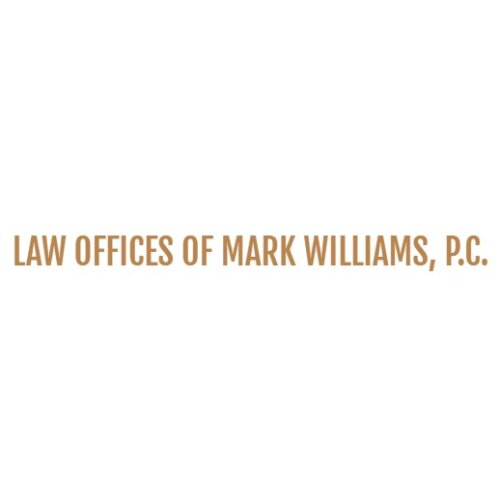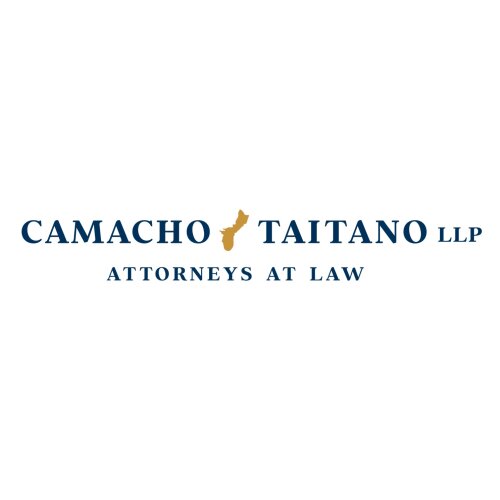Best Communications & Media Law Lawyers in Guam
Share your needs with us, get contacted by law firms.
Free. Takes 2 min.
Or refine your search by selecting a city:
List of the best lawyers in Guam
About Communications & Media Law in Guam
Communications & Media Law in Guam deals with the regulations and laws governing the use of various forms of communication and media platforms within the territory. This includes laws related to internet use, publishing, broadcasting, advertising, and privacy rights.
Why You May Need a Lawyer
You may need a lawyer specializing in Communications & Media Law in Guam if you are facing issues related to defamation, intellectual property rights, contract disputes, or violations of privacy laws. A lawyer can help you navigate the complex legal landscape and protect your rights in various communications and media-related matters.
Local Laws Overview
In Guam, Communications & Media Law is influenced by federal laws as well as local regulations specific to the territory. Key aspects of local laws include the Guam Sunshine Act, which ensures transparency in government communications, and the Privacy Act of 1974, which protects the privacy of individuals' information.
Frequently Asked Questions
1. What is considered defamation in Guam?
Defamation in Guam refers to the publication of false statements that harm a person's reputation. It can be categorized as libel (written) or slander (spoken) and may result in civil lawsuits.
2. How can I protect my intellectual property rights in Guam?
You can protect your intellectual property rights in Guam by registering trademarks, copyrights, and patents for your creations. Consulting with a lawyer specializing in intellectual property law is advisable.
3. What are the regulations for broadcasting in Guam?
Broadcasting in Guam is regulated by the Federal Communications Commission (FCC) as well as local laws. Licenses are required for radio and television stations, and content must adhere to broadcast standards.
4. Can I sue for invasion of privacy in Guam?
Yes, you can sue for invasion of privacy in Guam if your privacy rights have been violated. This can include intrusions into your personal space, public disclosure of private information, or using your likeness without permission.
5. What are the guidelines for advertising in Guam?
Advertising in Guam must adhere to truth-in-advertising laws and regulations. False or misleading advertisements can result in legal action, including fines and injunctions.
6. Are there specific regulations for online content in Guam?
Online content in Guam is subject to federal laws such as the Communications Decency Act and the Digital Millennium Copyright Act. Additionally, local regulations may apply to internet activities within the territory.
7. How can I ensure compliance with communications regulations in Guam?
To ensure compliance with communications regulations in Guam, it is advisable to consult with a lawyer specializing in Communications & Media Law. They can provide guidance on legal requirements and help draft compliant communication strategies.
8. What are the penalties for violating media laws in Guam?
Penalties for violating media laws in Guam can vary depending on the nature of the violation. Civil lawsuits, fines, injunctions, and criminal charges are potential consequences for breaching communications and media regulations.
9. Can I be held liable for content posted by users on my website in Guam?
As the owner of a website in Guam, you may be held liable for user-generated content that violates copyright, privacy, or other laws. Implementing terms of service and a content moderation policy can help mitigate legal risks.
10. How can I file a complaint about media practices in Guam?
If you have concerns about media practices in Guam, you can file a complaint with the Guam Office of the Attorney General or the Federal Communications Commission. Consulting with a lawyer can also help you navigate the complaints process.
Additional Resources
For additional resources related to Communications & Media Law in Guam, you can reach out to the Guam Office of the Attorney General, the Guam Bar Association, and the Federal Communications Commission. These organizations can provide information and guidance on legal matters within the territory.
Next Steps
If you require legal assistance in Communications & Media Law in Guam, it is advisable to consult with a qualified lawyer specializing in this field. They can assess your situation, provide expert advice, and guide you through the legal process to protect your rights and interests. Be sure to research and select a lawyer with experience in communications and media law to ensure the best possible outcome for your case.
Lawzana helps you find the best lawyers and law firms in Guam through a curated and pre-screened list of qualified legal professionals. Our platform offers rankings and detailed profiles of attorneys and law firms, allowing you to compare based on practice areas, including Communications & Media Law, experience, and client feedback.
Each profile includes a description of the firm's areas of practice, client reviews, team members and partners, year of establishment, spoken languages, office locations, contact information, social media presence, and any published articles or resources. Most firms on our platform speak English and are experienced in both local and international legal matters.
Get a quote from top-rated law firms in Guam — quickly, securely, and without unnecessary hassle.
Disclaimer:
The information provided on this page is for general informational purposes only and does not constitute legal advice. While we strive to ensure the accuracy and relevance of the content, legal information may change over time, and interpretations of the law can vary. You should always consult with a qualified legal professional for advice specific to your situation.
We disclaim all liability for actions taken or not taken based on the content of this page. If you believe any information is incorrect or outdated, please contact us, and we will review and update it where appropriate.
Browse communications & media law law firms by city in Guam
Refine your search by selecting a city.










